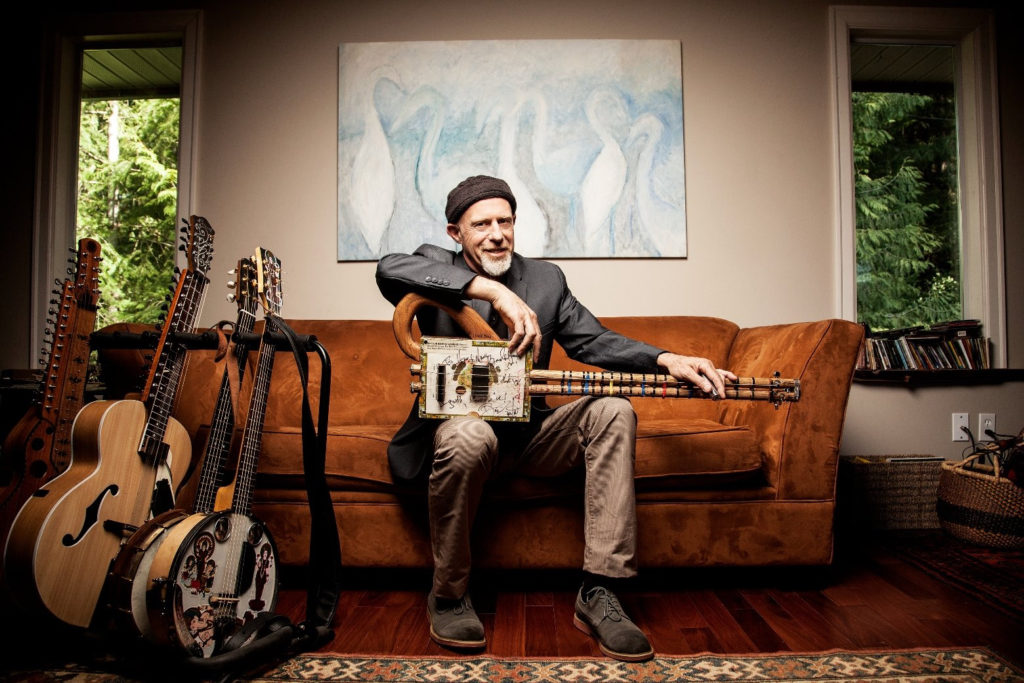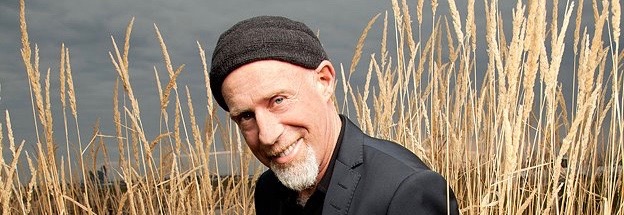Winner of seven Maple Blues Awards, the Canadian Folk Music Award in 2005 for Best Solo Artist, CBC Radio’s Great Canadian Blues Award in 2007 and recipient of six Juno Award nominations, Harry Manx makes his Carleton debut during our 10th anniversary celebrations on Wednesday, May 23rd. Show time is 8 PM and tickets are $35 advanced or $40 at the door. Harry hasn’t played Halifax since JazzFest in 2011, don’t miss this rare opportunity to see a master in action!

Born on the Isle of Man, Harry Manx immigrated to Ontario with his parents when he was six years old. He started doing sound at age 15 and gradually worked his way up to becoming a regular sound man at the well-known El Mocambo club in Toronto, where he worked with a slew of blues legends. While Manx doesn’t consider himself to be a blues artist per se, he does admit that blues is at the heart of much of his work. “I’ve always had one foot in the blues from those days … what I got from those artists is a groove that’s fairly similar to theirs. That’s what I’m particularly interested in … the groove, and that’s the way I play blues today.”
Harry forged this distinctive style by studying at the feet of the masters, first as a sound man in the blues clubs of Toronto during his formative years and then under a rigorous five-year tutelage with Vishwa Mohan Bhatt in India. Bhatt is the inventor of the 20-stringed Mohan Veena, which has become Harry’s signature instrument.
Even though he had played slide guitar for many years before arriving in India, he started back at the beginning under Bhatt’s tutelage, even re-learning how to hold the bar. From there, Manx learned Eastern scales and eventually ragas, deceptively complex and regimented musical patterns that form the basis of Indian composition.
He spent three to four hours each morning practicing in Bhatt’s home before returning that evening for a jam session with the tutor, his sons and various other fellow musicians. “Sometimes I’d throw in some blues licks in the middle,” he says, “and everyone would fall over laughing and enjoying themselves. And I thought if I can get Indian people to enjoy Western music like that, then maybe I could get Westerners to enjoy Indian music, too.” Harry decided to explore this thread of connection between the two musical traditions.
